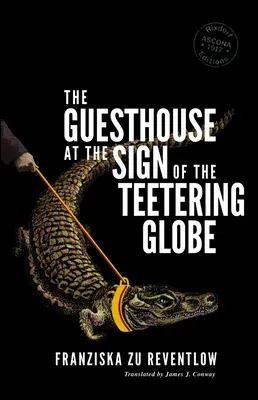Fiction. Short Stories. Translated from the German by James J. Conway.
In 1917, the world appears to be tilting on its axis. Accustomed
certainties are no more, alliances are forged and just as soon
abandoned. In the first of seven thematically related stories, we meet
reform-minded German eccentric Hieronymus Edelmann on a Spanish island,
where he leads a crocodile around on a leash and lures his compatriots
to a precarious guesthouse. His motives are opaque, but one of his
schemes is a correspondence association which appears to be an analogue
chat room. Elsewhere we find the polished little man who moves in truly
mysterious ways and may in fact be a group delusion; a séance that turns
into an illicit affair across dimensions; and a band of travellers
overawed by the occult power of their luxury luggage--consumers
possessed by their possessions. The surreal scenarios of THE GUESTHOUSE
AT THE SIGN OF THE TEETERING GLOBE remain vivid and unsettling a century
later. With dry humour and a profound sense of the uncanny, bohemian
countess Franziska zu Reventlow diagnoses a world in feverish
transition. This is the first book by Reventlow to appear in English, in
an edition that also features three short stories by the author and an
extensive afterword.
[T]he ten stories in the collection, of which seven are loosely
connected, are hybrids, hovering between genres and styles, ultimately
remaining unclassifiable, with a whiff of the parabolic Kafkaesque
riddle about them. Showing a wry and understated sense of humour, some
might perhaps best be described as surreal travel tales, sharpened by a
satirical gaze and a finely developed gift for evocative details.--Anna
Katharina Schaffner
GUESTHOUSE AT THE SIGN OF THE TEETERING GLOBE, with its unconventional
plot twists, carnivalesque characters, and existential concerns, will
likely appeal to fans of both canonical writers like Kafka and Camus, as
well as contemporary authors João Gilberto Noll and Can Xue.--Tyler
Langendorfer

